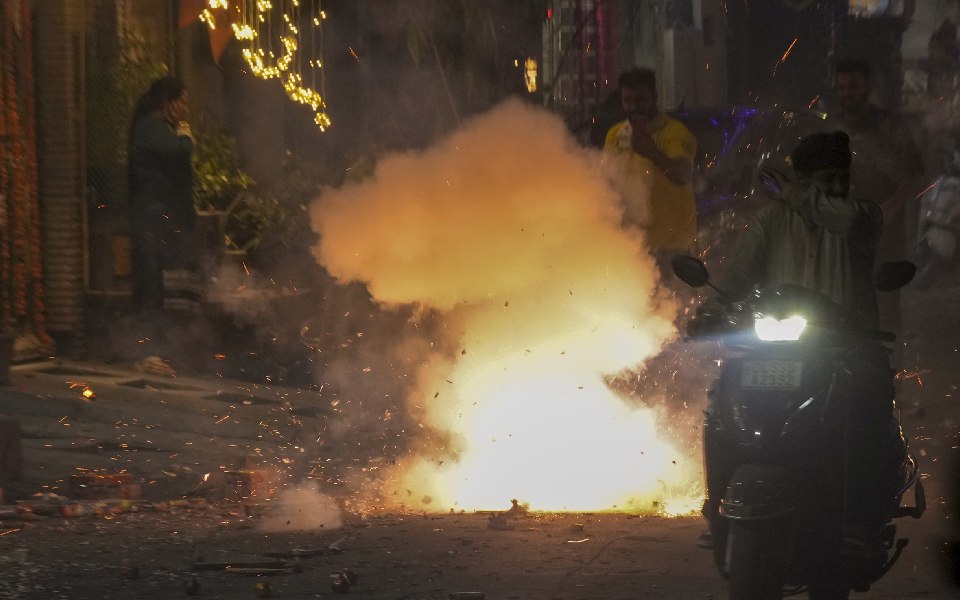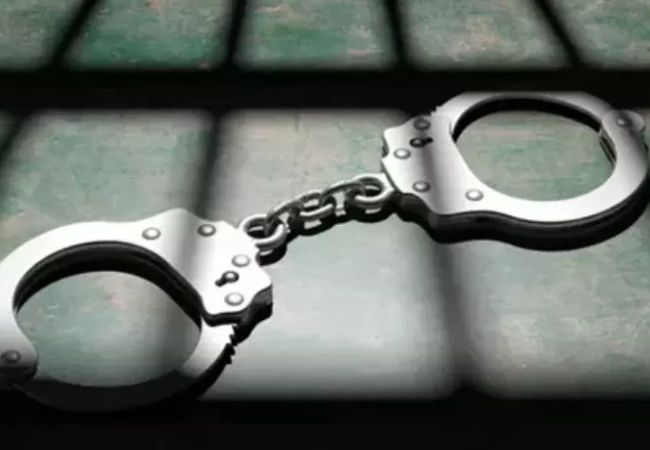New Delhi, Apr 3 (PTI): The Supreme Court on Thursday refused to relax the ban imposed on the manufacture, storage and sale on firecrackers in Delhi-NCR noting that air pollution levels remained alarming for a considerable time.
A bench of Justices Abhay S Oka and Ujjal Bhuyan said a large section of the population worked on streets and was the worst affected by pollution.
Not everybody can afford an air purifier at their residence or place of work to fight pollution, the bench said.
"Several orders passed by this court during last six months bring on the record the horrible situation with which prevailed in Delhi due to very high levels of air pollution...Right to health is an essential part of Article 21 of the constitution so is the Right to live in a pollution free atmosphere," the court said.
Unless the court was satisfied that the pollution due to the "so-called" green crackers was bare minimum, there was no question of reconsidering the previous orders, it added.
The bench said restricting the ban on firecrackers in the Delhi-NCR region just around Diwali would be meaningless, as it could be purchased and stored in advance.
The top court said the orders passed from time to time would indicate that the directions and ban on the use of firecrackers was warranted by an "extraordinary situation" created in Delhi.
Senior Advocate Aparajita Singh, who is amicus curiae in the case, informed the bench that all four NCR states had banned firecrackers, but online sale remained an issue in some states like Uttar Pradesh and Rajasthan.
The apex court also raised the issue of noise pollution caused by bursting of firecrackers.
The top court was hearing a batch of petitions filed by firecracker manufactures seeking relaxation of ban and permission to sell green crackers.
The court said manufacturers also have to do their duty towards environment under Article 51A of the Constitution and told them to cooperate.
"We are on whether there is any study on whether any pollution is caused by green crackers. We are appealing to all of you please don't place these applications. The ban is limited to NCR Delhi. You have the entire India open for sale of firecrackers," the bench said.
The top court had in December directed the Uttar Pradesh and Haryana governments to impose a complete ban on firecrackers until further orders.
The court had noted the Delhi government had enforced a complete ban on the manufacture, storage and sale, including delivery of firecrackers through online marketing round the year with immediate effect.
"We are of the view that this ban will be effective only when other states forming part of the NCR region impose similar measures. Even the state of Rajasthan has imposed a similar ban in that part of State of Rajasthan which falls in NCR regions. For the time being we direct the states of Uttar Pradesh and Haryana to impose a similar ban which is imposed by the state of Delhi," the bench had said.
Expressing serious concerns over high pollution levels in Delhi during Diwali, the apex court previously took exception to the violation of court orders and said its directives on firecrackers ban were "hardly implemented".
The apex court was hearing a plea filed by M C Mehta in 1985 seeking directions to curb air pollution in the national capital and adjoining areas.
Let the Truth be known. If you read VB and like VB, please be a VB Supporter and Help us deliver the Truth to one and all.
Guwahati, (PTI): The person, identified as Rafiqul Islam, was arrested from Lakhipur in Goalpara district for allegedly uploading video clips on his YouTube channel, Rafiqul R Vlogs.
He was produced before the Chief Judicial Magistrate's Court and remanded to three days police custody.
A case was registered at the Cyber Police Station, Panbazar under relevant sections of the Bharatiya Nyay Sanhita, read with relevant sections of the Information Technology Act, 2000; the Copyright Act, 1957 and Cinematograph Act, 1952.
The complaint was filed by the film's producer Shyamantak Gautam with the Cyber Police Station, Panbazar, alleging that the film was being uploaded by unauthorised persons within a few days of the film's release on October 31.
Zubeen Garg's last film has become the highest-grossing film in the history of the Assamese film industry, earning Rs 16 crore within the first 12 days of its release.


_vb_60.jpeg)

_vb_39.jpeg)
